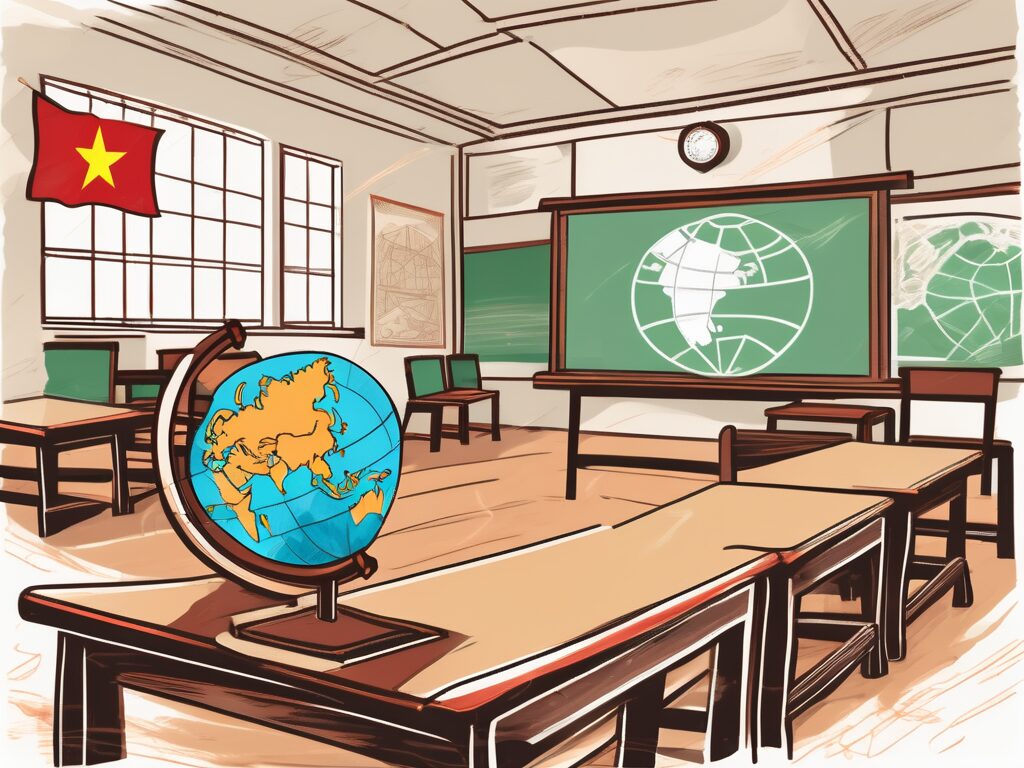Vietnam, with its vibrant culture, rich history, and welcoming locals, is a popular destination for international teachers. The country offers a unique blend of Eastern and Western influences, making it a fascinating place to live and work. But what does it really mean to be part of the international teaching community in Vietnam? Here, we delve into five key insights that will help you understand the landscape better.
1. Understanding the Education System
The Structure of the Education System
The Vietnamese education system is divided into five levels: preschool, primary school, secondary school, high school, and higher education. This structure is quite similar to the British education system, making it easier for British teachers to adapt. However, there are some differences, particularly in terms of curriculum and teaching methods, which we’ll explore in the next section.
The Curriculum and Teaching Methods
The curriculum in Vietnam is rigorous, with a strong focus on maths and science. However, there’s also an increasing emphasis on English language learning, creating numerous opportunities for native English speakers. The teaching methods, traditionally, have been more rote-based, but there’s a shift towards more interactive and student-centred learning. This is where international teachers can bring their unique perspectives and methodologies to the table.
2. The Demand for International Teachers
English Language Learning
As Vietnam continues to globalise, the demand for English language learning is skyrocketing. Parents recognise the importance of their children being fluent in English, and as a result, there’s a high demand for native English-speaking teachers. This is similar to other Asian countries like China and South Korea, where English language learning is highly valued.
International Schools
There’s also a growing number of international schools in Vietnam, particularly in big cities like Hanoi and Ho Chi Minh City. These schools often follow an international curriculum, such as the International Baccalaureate (IB), and require teachers who are familiar with these programmes. The demand for teachers in these schools is high, and they often offer attractive salary packages.
3. The Teaching Environment
Classroom Culture
The classroom culture in Vietnam is one of respect and discipline. Students are generally well-behaved and eager to learn, although the learning style can be more passive compared to Western classrooms. However, as an international teacher, you have the opportunity to encourage more active participation and critical thinking.
Workload and Work-Life Balance
Teaching in Vietnam can be demanding, with a high workload and expectations. However, it’s also rewarding, and many teachers find that the benefits outweigh the challenges. Plus, compared to teaching in the UK, you might find that you have more work-life balance in Vietnam, thanks to the lower cost of living and the opportunity to explore a new culture.
4. The Benefits of Teaching in Vietnam
Competitive Salaries and Benefits
International teachers in Vietnam can expect competitive salaries, often higher than the local average. Additionally, many schools offer benefits such as housing allowances, health insurance, and paid holidays. This, coupled with the lower cost of living, allows for a comfortable lifestyle.
Professional Development
Teaching in Vietnam also offers excellent professional development opportunities. Schools often invest in their teachers’ growth, offering training and development programmes. Plus, the experience of teaching in a different cultural context can be a valuable addition to your CV.
5. The Challenges of Teaching in Vietnam
Cultural Differences
While the cultural differences can be exciting, they can also pose challenges. It’s important to be open-minded and adaptable, and to respect the local customs and traditions. For instance, the communication style in Vietnam is often indirect, which can be a contrast to the more direct style you might be used to in the UK.
Language Barrier
While English is widely taught in schools, it’s not commonly spoken outside of the classroom. This can make everyday tasks like shopping or navigating public transport a bit challenging. However, many teachers view this as an opportunity to learn a new language and immerse themselves in the local culture.
In conclusion, teaching in Vietnam offers a unique and rewarding experience. With its high demand for international teachers, competitive salaries, and the chance to explore a vibrant culture, it’s no wonder that Vietnam is a top choice for many in the international teaching community.
Enhance Your International Teaching Career with IPGCE
Ready to elevate your teaching credentials and unlock new opportunities in Vietnam and beyond? IPGCE is here to guide you through the next step in your professional journey. By joining the UK’s #1 Teacher Training Course, you’ll overcome common barriers such as stringent qualification requirements and limited career progression. Our program connects you to a global network of educators, enriches your understanding of international curricula, and offers flexible online study options to fit your busy schedule. With IPGCE, you’re not just gaining a certificate; you’re opening doors to a 50% increase in interview callbacks, a 45% boost in promotion rates, and a significant salary increase. Don’t let inadequate credentials hold you back. Join the UK’s #1 Teacher Training Course and become part of a thriving international teaching community today.

